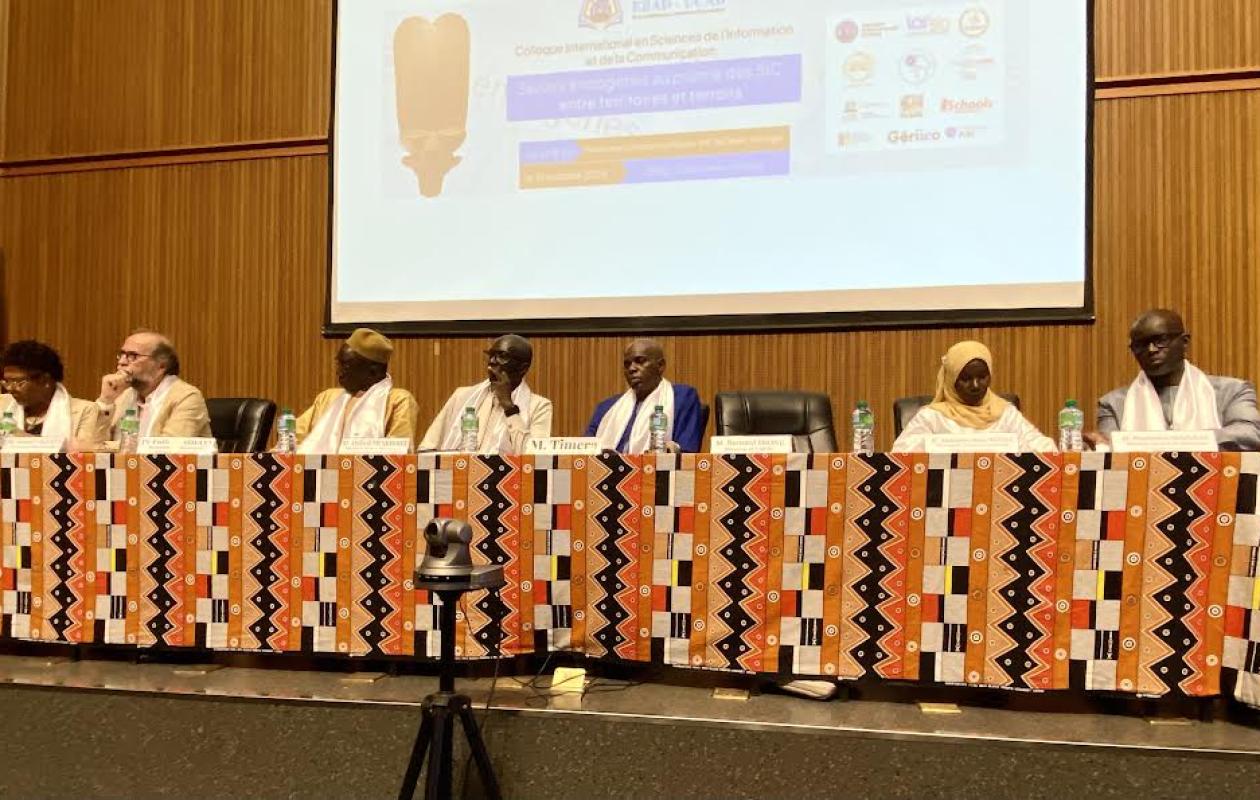
Savoirs endogènes au prisme des SIC : Au cœur des réflexions d’éminents universitaires venus d’horizon diverses
An international symposium in information and communication sciences (ICS) under the theme: "Endogenous knowledge through the lens of ICS: between territories and localities", brought together eminent professors and researchers from Africa and Europe.
This scientific meeting is part of the research tradition that EBAD has cultivated for more than two decades, and aims to examine the place, recognition and transmission of knowledge produced by African peoples in an academic world still largely structured by models inherited from colonization.
In his opening speech, the director of EBAD, Professor Djibril Diakhaté, delivered a profound reflection on the value and uniqueness of endogenous knowledge.
"Indigenous knowledge carries a unique rationality: that of peoples who knew how to read nature, interpret the signs of heaven and earth, invent ways of coexisting with the environment, long before scientific modernity came to codify this knowledge," he said.
Professor Diakhaté emphasized that this knowledge, often marginalized or denied, deserves to be rehabilitated today. "Rehabilitating indigenous knowledge is an act of epistemic justice. It means refusing to allow science to remain a one-way street, and restoring the legitimacy of other ways of understanding, learning, and transmitting knowledge," he added.
The theme of the symposium invites us to explore two complementary concepts, territories and terroirs, which, according to the director of EBAD, embody two essential dimensions of knowledge. Territory refers to movements, belonging, and memory, while terroir evokes the practices, gestures, and know-how rooted in daily experience.
"The land is the place where knowledge becomes lived experience," emphasizes Professor Diakhaté, for whom these two approaches allow us to think of knowledge not as a simple content, but as a "living space of production, experience and meaning."
By placing information and communication sciences at the heart of the discussion, this symposium aims to question how knowledge circulates, is mediated, classified and preserved as heritage, but also its role in the construction of collective identities.
For three days, researchers and academics from various backgrounds will compare their analyses and share their experiences through thematic panels and workshops.
Commentaires (1)
Participer à la Discussion
Règles de la communauté :
💡 Astuce : Utilisez des emojis depuis votre téléphone ou le module emoji ci-dessous. Cliquez sur GIF pour ajouter un GIF animé. Collez un lien X/Twitter, TikTok ou Instagram pour l'afficher automatiquement.